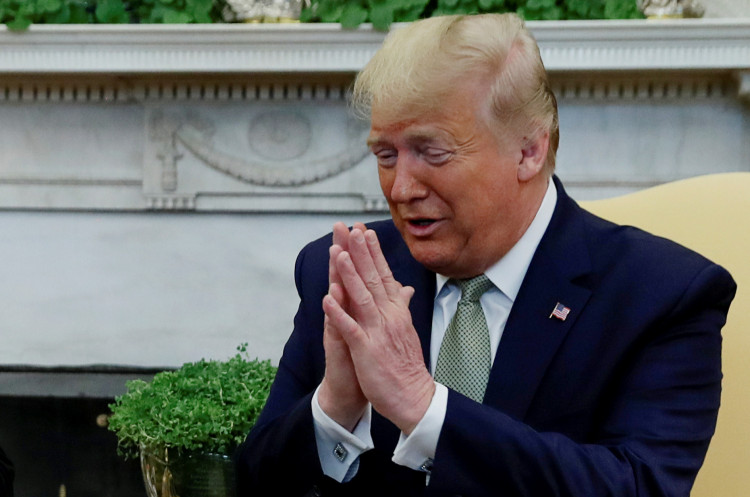President Donald Trump and House Majority Leader Nancy Pelosi (D-CA) on Friday moved to combat the rising tide of COVID-19 coronavirus infections in the United States with a combination of healthcare and economic measures.
As of Friday evening on the East Coast, there are 1,629 confirmed cases of COVID-19, as well as 41 deaths, according to the U.S. Centers for Disease Control and Prevention (CDC). Of the 41 U.S. deaths, 31 are Washington, 4 in California, 2 in Florida, and one each in New Jersey, South Dakota, Georgia, and Kansas.
There are confirmed COVID-19 cases in 47 of the 50 U.S. states plus Washington D.C. Only Idaho, Alabama and West Virginia have no confirmed COVID-19 cases. On the other hand, other sources estimate the number of confirmed coronavirus infections at 2,033.
Speaking at the White House, Trump on Friday declared a national emergency over the coronavirus pandemic and announced measures aimed at stemming the healthcare and economic effects of the outbreak. Trump said the declaration of a national emergency will make available as much as $50 billion in federal aid for states and towns affected by the COVID-19 pandemic. He also said the action will "unleash the full power of the federal government."
"I am officially declaring a national emergency, two very big words," said Trump.
Administration officials later clarified Trump declared both a national emergency and invoked the Stafford Act, or the Robert T. Stafford Disaster Relief and Emergency Assistance Act of 1998. This amendment triggers financial and physical assistance through the Federal Emergency Management Agency (FEMA).
It frees-up extra federal funding and allows access to the funds. The declaration of a national emergency also gives access to expanded authorities for the executive branch.
Trump's declaration puts FEMA in a position to be the coordinator of the federal government's coronavirus response. FEMA currently supports the Health and Human Services Department (HHSD) and the U.S. Centers for Disease Control and Prevention (CDC) for coronavirus response.
The declaration will make more federal funds available, as will supplies, personnel, and any other support. FEMA Administrator Peter Gaynor said the agency's warehouses are stocked with commodities across the country.
Trump also urged states to establish "emergency operations centers" to deal with the expected surge in patients. He also called for hospitals to activate their emergency preparedness plans intended to cope with this inevitable spike in hospital admissions.
Also on Friday, Pelosi said the House of Representatives Friday evening will pass economic stimulus bill aimed at boosting coronavirus testing, which currently is scandalously deficient, and protecting Americans from the economic impact of the pandemic
Pelosi said the House will pass an economic stimulus package aimed at boosting testing for the coronavirus and to help people displaced economically by the crisis.
"The three most important parts of this bill are testing, testing, testing," she said.
Pelosi said the bipartisan package will provide for coronavirus testing for everyone who needs a test -- including the uninsured -- for free. The package will also secure paid leave and allow two weeks of paid sick leave, and family and medical leave for those affected by the virus.
Pelosi called the packages "evidence-based" in its effort to tackle the virus crisis. Pelosi negotiated the final deal with Treasury Secretary Steven Mnuchin after more than two dozen talks.
The package will also boost funding for Medicaid, bolster unemployment insurance and ensure free meals for poor children.






